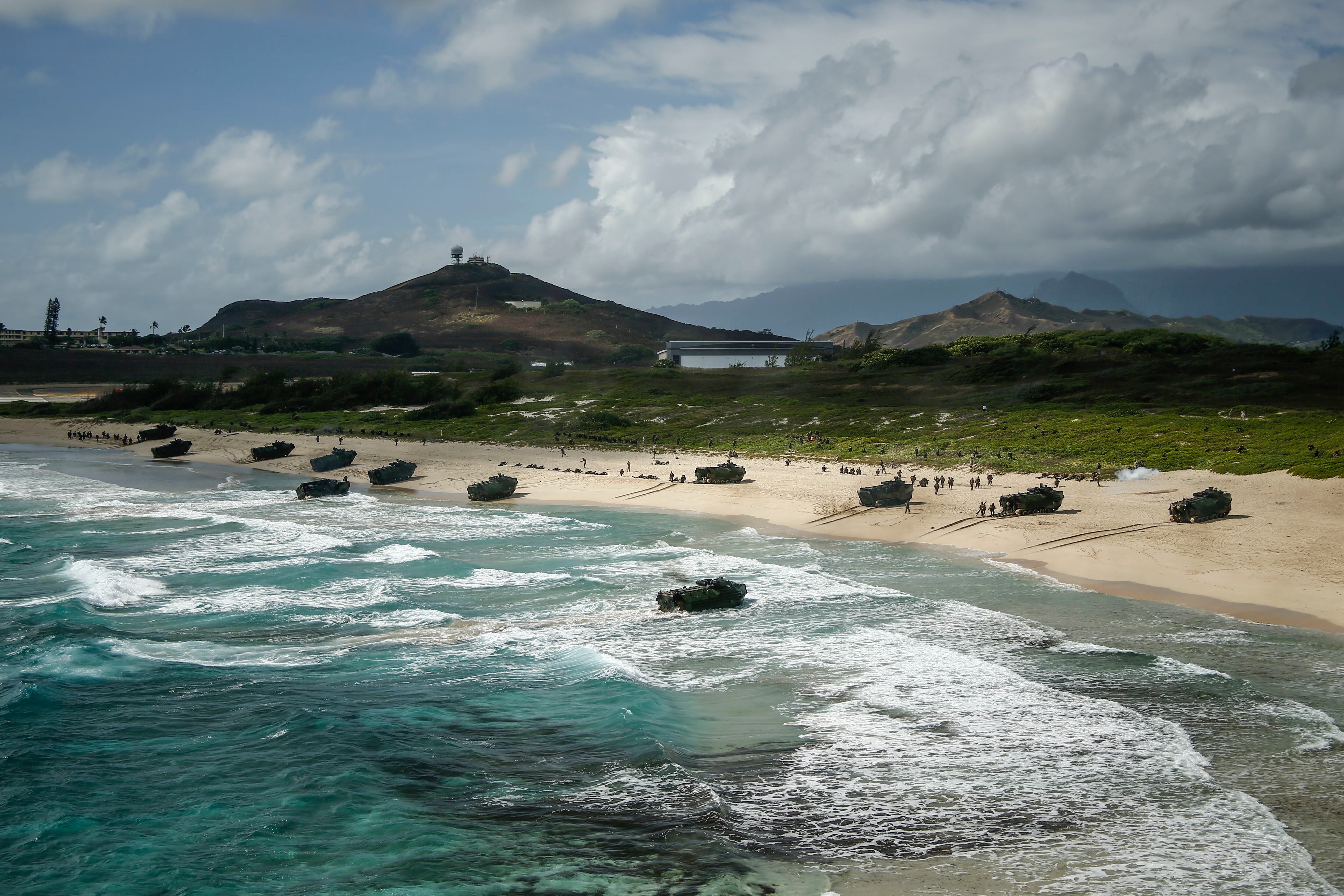With new interim guidance, the Marine Corps’ amphibious combat vehicles are set to return to waterborne operations on the open ocean after a two-month pause, officials announced Thursday.
The Corps paused all waterborne ACV operations in July following a high surf incident at Camp Pendleton, California, in which one vehicle rolled over and one was disabled. The Corps said that no Marines were injured in the incident.
The service quickly launched an internal review of the procedures surrounding the ACVs.
Following the incident, the Corps reauthorized ACV training on waters protected from the surf, like Pendleton’s Del Mar Boat Basin, but not out on the open ocean.
RELATED

But new interim guidance, which a news release from headquarters called “conservative,” allows ACVs to operate on the open ocean when the average height of the tallest waves is no more than 4 feet.
The breaker height “allows the ACV to operate safely” while allowing the Marine Corps “to better understand surf conditions through ongoing vehicle testing,”
Lt. Gen. David J. Furness, deputy commandant for plans, policies and operations, who made the initial halt decision, said in a news release, “Our training and discipline allows us to continue sharpening our warfighting abilities to remain the Nation’s premier expeditionary force in readiness.”
This summer was not the first time the Marine Corps has had to halt ACV operations.
In September 2021, the Corps paused waterborne ACV use for four months after identifying a problem with the vehicle’s tow rope.
In July 2020, an amphibious assault vehicle — what the ACV is aiming to replace ― sank off the coast of California, killing eight Marines and a Navy corpsman. The accident prompted the firings of at least two commanding officers.
Irene Loewenson is a staff reporter for Marine Corps Times. She joined Military Times as an editorial fellow in August 2022. She is a graduate of Williams College, where she was the editor-in-chief of the student newspaper.





